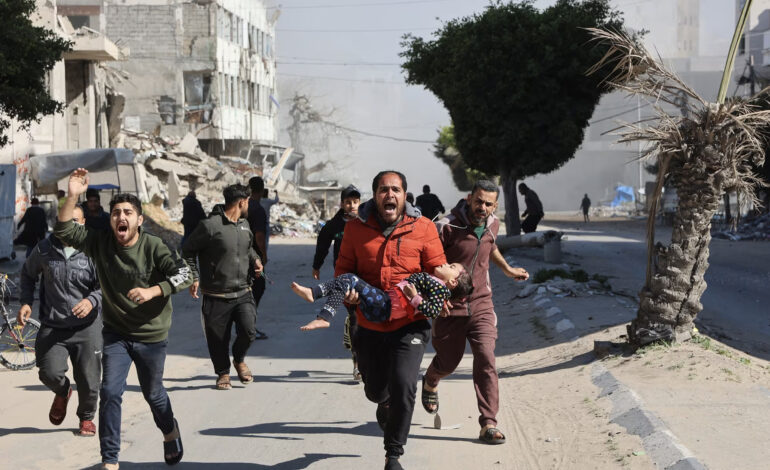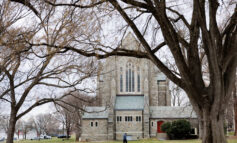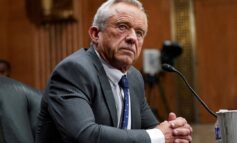The Arab American News weekly Arab world report:
The Middle East remains in the eye of the storm, with many of its nations burdened by decades-old political, security, economic and social crises. These issues continue to erupt in connection with regional conflicts. Against this backdrop, Iran’s announcement of its willingness to engage in indirect negotiations with the United States offered a glimmer of hope for potential breakthroughs, especially given the intertwined nature of the region’s crises, particularly concerning Iran’s nuclear program and Israeli security.
Iran agrees to indirect talks with Trump
Iranian Foreign Minister Abbas Araghchi announced Thursday that Tehran had responded to a message sent by President Trump through the U.A.E. inviting Iran to negotiate over its nuclear program. Araghchi told the official IRNA news agency that Iran’s formal reply was sent via Oman, stressing that Tehran’s position remains avoiding direct talks under maximum pressure. Iran had never previously negotiated with the Trump administration during his first term.
Earlier in March, Trump revealed that he had sent a letter to Supreme Leader Sayyed Ali Khamenei, urging negotiations and warning of potential military action if Iran declined. Tehran viewed the letter as more of a threat. In 2018, during Trump’s first term, the U.S. withdrew from the 2015 nuclear agreement and reimposed sanctions. That agreement had lifted several sanctions in exchange for Iran curbing its nuclear program.
Yemen’s missiles trouble Israel
While Israeli Prime Minister Benjamin Netanyahu tightens his grip on power by reinforcing his far-right coalition — revived through the resumption of the Gaza massacre — Yemeni missiles have continued targeting Israeli territory, forcing millions of Israelis daily into shelters and disrupting air traffic at Ben Gurion Airport. Despite persistent American airstrikes, Yemen’s supportive front remains undeterred.
Last week, U.S. forces launched several intense air raids targeting Saada province and the capital region of Sanaa, including early strikes on the Sanaa airport. Trump had threatened to “completely eliminate the Houthis.” However, the ruling Houthi movement in Sanaa remains steadfast in its support for Gaza. Houthi leader Abdul-Malik al-Houthi reaffirmed his country’s commitment, stating that the American aggression will only enhance their capabilities and resolve.
The Houthis began targeting Israeli-owned or affiliated ships in the Red Sea and beyond in November 2023 and have also launched attacks inside Israel and at U.S. Navy vessels. They paused these operations during the January 19 Gaza ceasefire, but resumed them on March 18 when Israel restarted its genocide campaign against Palestinians in Gaza.
Throughout last week, the Yemeni armed forces issued daily statements announcing strikes on Israel using ballistic missiles such as “Zulfiqar” and the hypersonic “Falasteen-2”, alongside drone attacks. This forced temporary suspension of operations at Ben Gurion Airport.
Yemeni armed forces also reported joint operations involving missiles and drones targeting warships in the Red Sea, including the U.S. aircraft carrier U.S.S. Harry S. Truman. They pledged to continue retaliating against U.S. aggression, to block Israeli navigation in declared areas and to strike Israeli targets until the war ends and the blockade on Gaza is lifted.
The Israeli army claimed to have intercepted all missiles, but announced an investigation into the growing missile threat from Yemen, acknowledging the need to assess its impact on national security.
Gaza massacres continue
Israel’s killing machine persisted in Gaza last week, with the death toll surpassing 50,000, according to official figures from the besieged enclave. Food, water and medical crises have worsened, threatening more than two million Palestinians with starvation and famine.
In addition to ongoing Israeli airstrikes, border closures have deepened the humanitarian catastrophe, paralyzing health and essential services. Hospitals and public facilities face acute shortages of fuel, medical supplies and clean water. More than 700 water wells have been destroyed, exacerbating water-related disease outbreaks.
Medication shortages and power outages have paralyzed life-saving equipment, endangering thousands of patients. Hundreds of medical teams have been denied entry. The government’s media office in Gaza issued an urgent appeal to the international community and U.N. agencies to pressure Israel to open crossings and allow aid.
Israel’s Supreme Court unanimously rejected petitions by human rights organizations to allow humanitarian aid into Gaza, arguing that Israel must protect its sovereignty and national interests.
Internally, divisions within the Israeli leadership persist. Netanyahu’s office accused Shin Bet head Ronen Bar of knowing about the October 7 attack at 4:30 a.m., but failing to alert the prime minister. Bar remains in office by court order, despite Netanyahu’s efforts to remove him, along with the judicial advisor to the government. Netanyahu’s ability to pass the budget — thanks to appeasing far-right Minister Itamar Ben Gvir by resuming the Gaza war — saved his government from automatic collapse and early elections.
According to the Wall Street Journal, Israel is planning a massive ground invasion of Gaza, aiming to defeat Hamas by occupying parts of the territory. Netanyahu’s newly formed security team — including Defense Minister Yisrael Katz and Chief of Staff Eyal Zamir — believes U.S. support for a renewed offensive offers Israel more room for military maneuvering.
Netanyahu’s tightening grip on power
Domestically, Netanyahu and his right-wing coalition are pushing ahead with political reforms intended to reshape Israel’s political system. These reforms reduce the role of judicial and oversight institutions, threatening the liberal foundations of the state and risking deeper social division.
Many Israeli analysts warn that these moves could push the country toward civil war. Former Defense Minister Benny Gantz, now in opposition but previously part of Netanyahu’s coalition, described the judicial overhaul as a “red line”, especially with legislation allowing politicians to control judicial appointments.
The war on Gaza is now seen as a tool in Netanyahu’s internal political struggle, helping him remain in power. As the war enters its 16th month with no clear military success, questions mount over whether the war is truly targeting Hamas — or is merely sustaining the Netanyahu government.
Political showdown in Lebanon
In Lebanon, a political crisis narrowly avoided escalation last week over the appointment of Karim Saeed as central bank governor — a nomination supported by President Joseph Aoun and the Shi’a duo (Amal and Hezbollah), but opposed by Prime Minister Nawaf Salam until a cabinet vote approved it.
The vote highlighted deep divisions within Lebanon’s ruling bloc, with fears the government may collapse if another crisis erupts. Thursday’s appointments followed earlier security reshuffles involving military and police chiefs.
Interior Minister Ahmad al-Hajjar confirmed that municipal elections will take place between May 4 and 25, with special arrangements for war-damaged villages in the south.
Meanwhile, Israel has continued its unilateral attacks on Lebanon despite a ceasefire agreement in December, increasing external pressure for negotiations with Israel through committees involving military and diplomatic figures. Domestically, there is firm insistence that talks remain within the framework of U.N. Resolution 1701.
President Aoun reportedly appears anxious about this pressure, understanding it will not be easy to push Lebanon toward normalization. Parliament Speaker Nabih Berri reiterated the Shi’a duo’s rejection of any political negotiations with Israel.
Sources close to Prime Minister Salam confirmed he is also against entering normalization-style talks and fears the government could collapse if such a step is taken.
A Gulf newspaper quoted a Lebanese source claiming the U.S. is pushing for a deal between Lebanon and Israel that is “less than normalization, more than a truce”, intended to neutralize Hezbollah by restraining its arsenal.
On the Syria-Lebanon front, the Élysée Palace announced that French President Emmanuel Macron would meet President Aoun and Syrian transitional President Ahmed al-Sharaa in a trilateral virtual summit to discuss border security and regional sovereignty.
According to the U.N., more than 21,000 people have fled Syrian violence into Lebanon since early March, particularly from massacres targeting Alawites in coastal provinces like Latakia and Tartous.
Israel’s escalation in Syria
In southern Syria, Israeli forces continued incursions into Quneitra and Daraa provinces, culminating in an armed clash with local youth resisting the invasion, which left six dead.
The Israeli army claimed its troops were fired upon. Syrian state media reported that Israeli tanks shelled Koya village west of Daraa, with extensive surveillance drone activity in the area.
The Syrian Observatory for Human Rights said Israeli forces attempted to storm the village, but were repelled by local fighters. Despite this, Israeli troops are consolidating control over several hundred square kilometers on the Syrian side of the border, citing threats from “hostile elements” and facing no resistance from the new Syrian regime.
Earlier this month, Israel conducted military raids in Daraa and Quneitra, storming military sites, searching homes, detaining civilians and targeting weapons depots to prevent any hostile military buildup near its borders.
Last week, Israeli airstrikes extended into northern Syria, reaching Latakia. Army spokesman Avichay Adraee said the attacks targeted “remaining military capabilities” around the T4 and Palmyra airbases.
Israel’s Channel 12 reported that the T4 strike destroyed the control tower, runways and hangars, rendering the base inoperable amid reports that Turkey aims to establish a military base there.
Widespread protests in Turkey
While Turkey seeks to expand its influence in Syria, President Recep Tayyip Erdoğan now faces a mass uprising led by opposition parties protesting the arrest of Istanbul Mayor Ekrem İmamoğlu, a prominent rival. Protesters, opposition leaders, European figures and rights groups denounced the move as “politically motivated” and “undemocratic.”
Özgür Özel, leader of the Republican People’s Party (CHP), called for continued demonstrations in Istanbul, demanding İmamoğlu’s release and early elections. After visiting İmamoğlu in prison alongside mayors of Şişli and Beylikdüzü and other opposition figures, Özel hailed them as “lions standing tall with pride.”
Özel declared that protests would continue and hinted at a major surprise for Erdoğan during Eid, saying, “We won’t celebrate Eid in Ankara, but with the millions who reject this assault on democracy and public will.”
Turkey’s Interior Ministry announced more than 1,100 arrests, including politicians and journalists. The U.N. expressed concern over Turkey’s mass detentions and urged investigations into allegations of unlawful force against protesters.






Leave a Reply